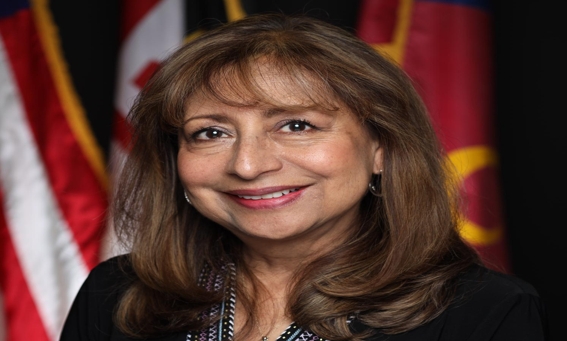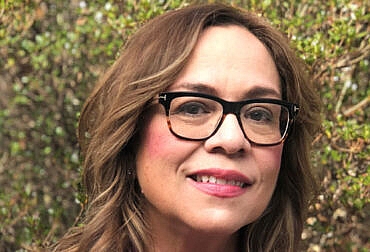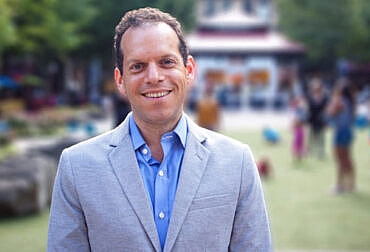Nagender Madavaram discussed with Assistant Chief Administrative Officer, Ms. Sonia Mora about her role during COVID. Prior to joining the current office, Sonia served as the Director of Por Nuestra Salud y Bienestar, an initiative aimed at providing an integrated response to address the impact of the COVID pandemic in the Latino community. She worked 30 years at the Department of Health and Human Services. She received ‘Latinx Heroes: Leading, Healing, and Providing Hope During the Pandemic’ award from Montgomery County Council in 2020. Sonia holds a Bachelor of Science from Marymount University and a Master of Public Health from Walden University. The interview covers topics of newcomers to the county, early childhood education program, equitable access to services and Afghan refugees.
Newcomers to the County:
Nagender Madavaram: The County has considerable number of immigrants. What programs do you have to integrate immigrants into mainstream?
Sonia Mora: That’s a really a good question. I know at this point, there are some programs for newcomers. There is one program, it’s a mainly Latino program. I think it’s going to be extended to serve the newcomer population, arriving from Central America. So, part of this program provides legal assistance for these populations. I wouldn’t call them refugees. They’re newcomers because they don’t have refugee status, many of them don’t qualify for really any services. So, part of the work is to help them to navigate the systems and connect them to MCPS. The MCPS connects children and families with the necessary support systems. For example, mental health program support to refugee families that have come in because of all the trauma. We know the trauma that people experience on their journey coming here or the hardships in their own countries. I was just hearing this morning about how the United States was prepared to receive 100,000 people from Korea. So, these individuals come with nothing. In these cases, many people are coming from towns or crossing the borders. The mental health support is really important to incorporate more into the daily pieces of MCPS tasks. Another super important piece is educating the community. Many people tend to think that people are here because they want to have babies here and they want to be citizens of the US. In fact, many of them are here because they were forced to leave their motherland.
The Office of the County Executive has a group of ethnic Liaisons as well. So, there are different individuals for Latino, African American, Caribbean, Middle Eastern and Asian populations. The officials are here to support the communities to help and integrate them. We have Afghani refugees right now; a lot of people have begun to help because our community here is generous and welcoming. There was a lack of coordination as different people were doing several things. Fortunately, faith-based communities are involved so that people can begin to talk to each other. That’s just the beginning effort to provide well coordination to do better job for refugees who are going to stay in Montgomery County. The real challenge is how do we connect them into the fabric and the services that are available for all of our populations?
Early Childhood Education Program:
Nagender Madavaram: There was lot of discussion about early childhood education program. The county implemented the program in some schools already. Have you seen any visible results of the program?
Sonia Mora: I have to confess that it is not my strength. It’s not something that I had a lot of expertise with the program. I think, Department of Health and Human Services is right agency to verify the initiative. Unfortunately, because of COVID, lot of plans that this administration had had to stop. I know that the county efforts able to help a lot of facilities and served their needs. The family care facilities have not been shut down because they have been supported by the County. The facilities have provided services during the pandemic. There was a network which provided the services to the community. There are comprehensive plans which discussed that how we can grow the capacity of the services. There’s also a bunch of initiatives now with the blueprint that came out from the state about how the family sponsored centers can meet the needs of the children. I have seen the workgroup that has been focusing on how do we serve all these communities? Probably, responsive centers really prepare for the new thing. So, I think the plan has been working. I’ve been really impressed. I’ve been getting more educated about the childhood education program. Honestly, I didn’t realize how large it is and how important it is for the development of children until I came here.
Equitable Access to Services:
Nagender Madavaram: There was no sensitive discussion about equitable health services to minorities before COVID was started. Equitable access to services is important program in your portfolio. The county also appointed Equity Officer and successfully implemented the program.
Sonia Mora: The county made equity is a top priority and then they started reaching the Latino community to vaccinate them. The county allocated the resources that’s why the program is successful in the country, that is my observation. I think that the whole issue of disparities and inequities has been there forever for a long time since I started my profession in public health. That was one of the first things I worked at the national level. The main issue was health disparities. We called them inequities. I mean things change but I think COVID highlighted the inequities in healthcare. It was so evident that they were there, with the result our families were getting sick and they were dying. So, it all came to the surface during COVID. All of these things contributed to the explosion of COVID among these communities. Obviously, it became really evident.
We are assessing that what was done well? We knew exactly how to access the communities and how to work with the them. It was the partnership with the community agencies. Everybody in the county government don’t understand those disparities, and that’s why it is important to educate the officials. Fortunately, whole equity and social justice law was passed. We are beginning to look at things through an equity lens that wouldn’t have occurred before. It’s part of the thread of the government we do different things by using public grants. You have to look at things that what is the impact on equity? Is it helping people? So, I think that provides a framework to do the work but you need to know what you’re doing on the field. You know you can have all the frameworks in the world, but if you don’t know exactly how to address these issues and taking into consideration of culture, language and assets then some of these communities will be constrained. So, I’ve been working on this issue for 30 years plus. I think in the space that I worked, I made significant difference but it was small. Now, we have the whole county government that is looking at equity issues, systemic racism and other related issues. My hope is that with that framework we would have the policies and the implementation plans to be able to make those changes. So, I’m hopeful that we will be able to tackle that is going to change because populations are going to continue to change.
Afghanistan Refugees:
Nagender Madavaram: We have Afghanistan refugee situation. Do you want to say anything?
Sonia Mora: I just think that it is important. We are very fortunate that we have county government and county council that are very responsive. Our community as a whole is welcoming refugees as well. Refugees are people of color and everyone in the county does well. When we close those inequities and disparities it’s going to benefit everyone. We’re all able to bring people to different level and it benefits the whole county. So, I think that’s important.











